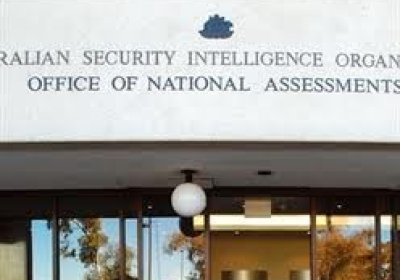Critics have dubbed the Intelligence Services Legislation Amendment Bill now before parliament the “WikiLeaks Amendment”.
It will strengthen the powers of Australia’s spy agency ASIO to target any individual or organisation that opposes the interests of the Australian government, even if Australia’s defence interests and international relations are not at stake.
This would include Australian citizens involved in non-violent political activities abroad, which do not constitute a threat to Australia’s security.
Kerry Deligiannis
Contrary to the popular belief that Australian citizens hold absolute rights to freedom and privacy, Australia continues to evolve toward a “big brother”-like society as the government strengthens the powers of the Australian Security Intelligence Organisation (ASIO).
With the support of the opposition, the government expanded ASIO’s powers to share information from wiretaps and computer access with other agencies. The expansion came with the Telecommunications Interception and Intelligence Services Legislation Amendment Act, passed in March.
For more than five long and horrendous years, David Hicks was locked up in the US prison camp at Guantanamo Bay in Cuba where he was subject to countless inhumane forms of torture.
For many people, gambling merely fulfils a short-term desire to be entertained. Yet for an estimated 2.3% of Australian adults, it has become a compulsion; an uncontrollable addiction which largely affects their personal, social and financial life.
Over the past decade, the gambling industry in Australia has expanded significantly.
Currently, every state and territory within Australia has at least one casino operating within its jurisdiction, offering various gambling options, including poker and gaming machines, to anyone over the legal age of 18.
For many years, competitions granting prizes have been a successful tool used by marketers to try to promote their cause or business.
However, there should be great concern when the prize up for grabs represents sexist ideas and targets women who feel inadequate about their appearance.
Last month, Sin City Nightclub on the Gold Coast promoted breast enhancement surgery “worth $10,000” as a competition prize.
Through the eyes of many modern women, it seems difficult to comprehend that not so many decades ago women all around the Western world were fighting for the basic rights and freedoms they so rightly deserved.
Amid an ongoing struggle, laws began to change and social ideals began to alter. A new sense of empowerment quickly emerged as women entered the workforce and marked their places in the political arena.
Had gender equality finally been won? Or did certain stereotypes of women remain beneath the surface, waiting to be shaped by the norms of modern society and popular culture?
The underlying issue of racism in Australia has been a pervasive feature of national political life ever since the invasion of the First Fleet in 1788.
It was used as an ideological justification for the dispossession of indigenous Australians.
In 1975, the Racial Discrimination Act was implemented in order to enable all Australians, regardless of their racial and cultural background, to enjoy equal rights and to prohibit discriminative behaviour based on racial hatred.
In Australia, a society created on the basis of racial division and superiority, the ugly face of prejudice and discrimination is, unsurprisingly, still very evident today.
Regardless of the often mentioned idea of a “multicultural” Australia, there seems to be a strong campaign to stigmatise, reject and isolate Muslims from mainstream values and norms.
Through recent comments and initiatives taken by several Liberal and Labor party politicians, the overt nature of anti-Islamic discrimination in Australia is as obvious as it is disgraceful.
Conservative Party chairperson and the first Muslim woman to attend the British cabinet, Sayeeda Warsi, said in January that Islamophobia and prejudice against Muslims has “passed the dinner table test” and is now widely accepted in Britain.
The rise of Islamophobia within Western societies has grown more since the September 11, 2001 attacks in the US.
A 2007 Zogby International study said 76% of Arab-American youth surveyed had been discriminated against.
Hundreds of protesters rallied in support of the whistleblowing website Wikileaks and its editor in chief, Julian Assange, in Sydney on January 15. Other rallies also took place in major cities around the world.
The rally, which began at Sydney’s Town Hall, was addressed by several key speakers. The protesters later took to the streets for a loud and lively march, which went past the US consulate and ended at Hyde Park.








